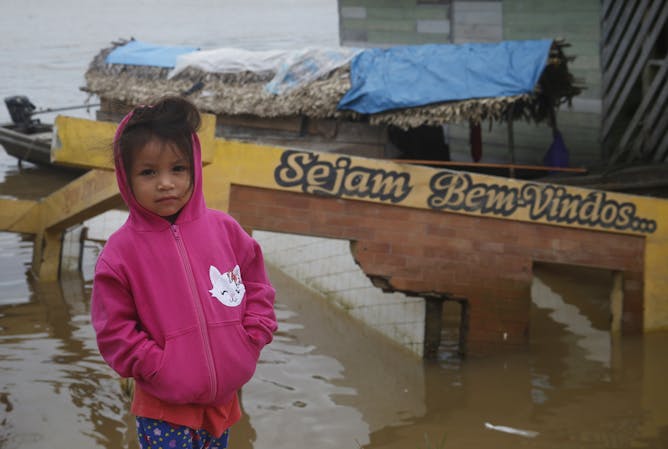|
When British Columbia announced it would decriminalize possession of small amounts of opiates, cocaine, methamphetamines and MDMA, it joined a small number of progressive jurisdictions that have chosen not to arrest, charge or seize drugs from adults with 2.5 grams or less of these substances for personal use.
Decriminalization is part of an approach to drug legislation that focuses on public health rather than criminalization. Instead of treating drug users like criminals, this approach prioritizes harm reduction.
Today in The Conversation Canada, Andrew Hathaway of the University of Guelph analyzes this approach and compares B.C.’s bold strategy to similar efforts in Portugal and Oregon. He also explains the decades of studies and legislation changes in Canada that have led to this decision. “Decriminalizing drug use is the realization of 50 years of policy discussions advocating for removal of all penalties for small amounts of drugs,” Hathaway writes.
Also today:
All the best,
|

|
Patricia Nicholson
Health + Medicine Editor
|
|

B.C. Minister of Mental Health and Addictions Sheila Malcolmson holds a copy of exemption documents that enable British Columbia to decriminalize possession of small amounts of ‘hard’ drugs for personal use. B.C.’s bold experiment will be closely watched as a comparator with other progressive jurisdictions.
THE CANADIAN PRESS/Darryl Dyck
Andrew Hathaway, University of Guelph
British Columbia’s bold experiment provides an opportunity to implement more balance in Canadian drug policy, and a more principled withdrawal from the war on drugs.
|

Chief James Ramer of the Toronto Police Service speaks during a press conference releasing the 2020 race-based data, at police headquarters in Toronto on June 15, 2022.
THE CANADIAN PRESS/ Tijana Martin
Temitope Oriola, University of Alberta
The Toronto Police Service chief apologized to the public for the findings of an investigation that demonstrated the Toronto police’s excessive use of force on racialized residents.
|

A child from the Mayuruna ethnic group stands on a pier on the banks of the Atalaia do Norte River in Amazonas state, Brazil, on June 12, 2022. Federal police and military forces are searching and investigating the disappearance of British journalist Dom Phillips and Indigenous affairs expert Bruno Araujo Pereira.
(AP Photo/Edmar Barros)
Félix Bhérer-Magnan, Université Laval
The deforestation of the Amazon in Brazil is at its peak, with 2022 breaking all records. Deforestation threatens human rights.
|

A for sale sign outside a home indicates that it has sold for over the asking price, in Ottawa, in March 2021. House prices and rents have become increasingly more unaffordable in Ontario over the past few years.
THE CANADIAN PRESS/Justin Tang
Murat Ucoglu, York University, Canada; Ute Lehrer, York University, Canada
Canada’s current economic growth model is currently dependent on the conversion of housing from a human right into a financial investment tool, leading to an ever-worsening housing crisis.
|

Ontario NDP Leader Andrea Horwath wipes a tear as she announces her resignation in Hamilton, Ont., in June 2022.
THE CANADIAN PRESS/Tara Walton
Sam Routley, Western University
The Ontario NDP is at a crossroads. It has to decide its direction and what role it wants to play in the province’s electoral dynamics.
|
La Conversation Canada
|

Le champion de F1 Max Verstappen, de l'écurie Red Bull, lors du Grand Prix de Montréal. L'anticipation est un facteur de performance en sport et peut être caractérisée par une rapidité et une justesse de réponses, et par des recherches visuelles spécifiques.
Shutterstock
Mildred Loiseau Taupin, École de technologie supérieure (ÉTS)
L’anticipation est un facteur à prendre en compte dans la réalisation des performances sportives en vue des prochaines grandes compétitions.
|
Ukraine Invasion
|
-
Anil Menon, University of Michigan; Pauline Jones, University of Michigan
History brought Ukraine’s plight home to people around the world, and helped mobilize political and military support against the Russian invasion.
-
Christopher Morris, University of Portsmouth
Russia’s military machine is finding the terrain in the Donbas region extremely challenging.
-
Paul Maddrell, Loughborough University
Russia’s long-term plan for Ukraine is to draw it away from the west.
|
|
Arts
|
-
Matt Weaver, University of Portsmouth
The company has been suspected of alluding to same-sex couples in the past but Lightyear’s kiss could be the first overt instance of LGBTQ+ representation.
|
|
Business + Economy
|
-
Vidhura S Tennekoon, IUPUI
US stocks recently entered a bear market as investors grow pessimistic the Federal Reserve can bring down inflation while avoiding a recession.
|
|
Culture + Society
|
-
Shweta Singh, Warwick Business School, University of Warwick
TikTok is increasingly the social media of choice for older people who enthusiastically reject socially constructed notions of old age.
|
|
Politics
|
-
Lindsay Chervinsky, Southern Methodist University
The vice president has said he looks forward to meeting the framers of the Constitution in heaven. That is not the mindset of someone with short-term vision.
|
|
|
|
| |
| |
| |
| |
|
|